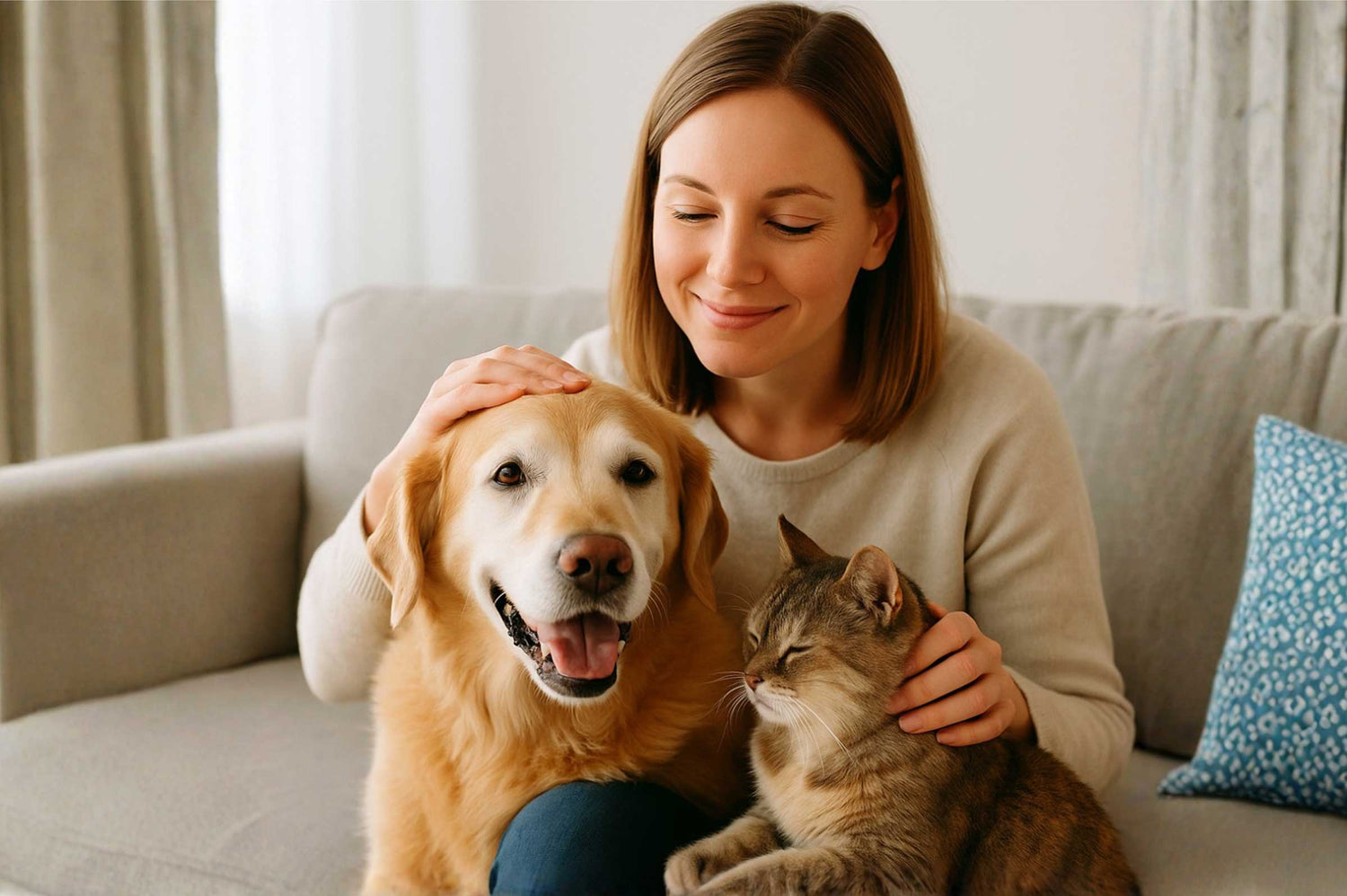As dogs and cats age, their brains and bodies change just like ours. Memory lapses, slower learning, and reduced energy may show up in ways that concern families who see their pets as cherished companions. Many pet parents look for natural ways to support brain health, boost immunity, and keep their senior best friends feeling sharp.
Antioxidants, especially those from plants and mushrooms, are drawing more attention for their ability to protect against cellular damage and encourage long-term wellness. Among the most researched options are milk thistle and medicinal mushrooms, both offering benefits that extend beyond just brain function.
Why Do Senior Pets Need Antioxidants?
Aging increases oxidative stress in the body. Free radicals—unstable molecules—can damage cells, including those in the brain. When left unchecked, this damage may contribute to cognitive decline, memory loss, and reduced vitality. Antioxidants work by neutralizing these harmful molecules, which helps protect cells and maintain healthier function.
For senior dogs and cats, maintaining healthy brain function often means improving overall quality of life. Antioxidants not only support mental sharpness but also strengthen the immune system, making it easier for older pets to fight infections and bounce back from illness.
How Can Milk Thistle Support Brain Health?
Milk thistle is best known for its liver-supporting properties, but research also shows its antioxidant compounds may benefit the brain. Its active ingredient, silymarin, protects nerve cells from oxidative stress, which can reduce the risk of cognitive decline. This protective effect may help senior pets stay alert and engaged longer into their golden years.
In addition to brain support, studies show milk thistle helps keep the liver healthy, which indirectly benefits the brain. A well-functioning liver processes toxins more effectively, reducing the overall burden on the body and supporting long-term vitality.
What Role Do Mushrooms Play in Antioxidant Support?
Medicinal mushrooms such as turkey tail, reishi, maitake, and shiitake are packed with antioxidants and unique compounds called beta-glucans. These compounds not only reduce oxidative damage but also boost immune defenses, which is especially important as dogs and cats age. Supporting the immune system means fewer sick days and more energy for play, walks, and family time.
Some mushrooms also show promise in protecting brain cells from damage. By reducing inflammation and improving circulation, they may help maintain mental clarity and steady energy in older animals. This combination of brain and immune support makes mushrooms a valuable addition to a senior’s wellness routine.
Do Antioxidants Improve More Than Just the Brain?
Yes. While brain health is often the focus, antioxidants like those in milk thistle and mushrooms support the whole body. They help reduce inflammation in joints, which can improve mobility and comfort for senior dogs and cats. A healthier body supports a healthier mind, creating a reinforcing cycle of overall well-being.
Antioxidants also play a role in heart and eye health, both of which can decline with age. Protecting these systems ensures that older pets continue to enjoy a high quality of life, staying connected and active with their families.
How Can You Safely Add Antioxidants to Your Best Friend’s Routine?
Not all supplements are created equal, so choosing a high-quality formula designed for pets is important. Look for products that combine scientifically studied ingredients like milk thistle and mushrooms in safe, effective doses. Always consult with your veterinarian before introducing new supplements, especially if your dog is on medication.
When given appropriately, antioxidant supplements can be an easy way to enhance your pet’s daily routine. Over time, pet parents may notice improvements in energy, sharper focus, and a stronger immune system—helping senior dogs and cats enjoy more good days with their families.
Ready to Support Your Senior Pet’s Health?
Senior pets deserve the best care as they age, and antioxidants can make a meaningful difference in keeping their minds sharp and their bodies resilient. By adding natural support from ingredients like milk thistle and mushrooms, you can give your furry friends extra protection against the effects of aging.
To provide your companion with the best blend of immune and brain health support, consider VetSmart Formulas Critical Immune Defense. It’s a powerful way to help your senior stay vibrant, healthy, and full of life.











